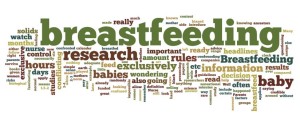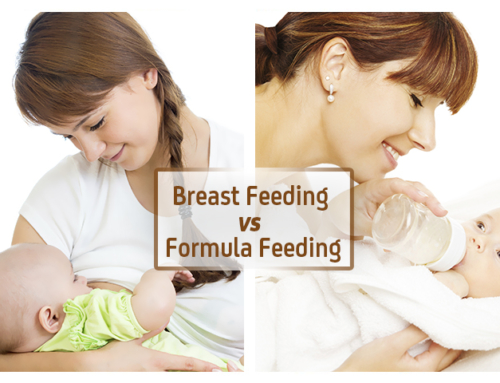I am a lactivist.
I know, it’s a dirty word that everyone seems to be shying away from these days, but I’m going to own it. As more articles decrying lactivism hit the newsstands and internet, the more people start to distance themselves from the term. Dr. Melissa Bartick (a doctor and researcher who studies breastfeeding and health implications) is the latest in a slew of people that have distanced themselves from the lactivist label (though to no avail in terms of backlash from those who decry lactivism). At the same time, a friend of mine said she wasn’t a lactivist either because she didn’t believe in pushing breastfeeding. The stereotype is that a lactivist is someone who must push breastfeeding at all costs, ignoring women’s choices or desires, and using shame tactics to make their point.
That’s not why I’m a lactivist.
According to recent CDC data, 60% of American women fail to reach their breastfeeding goals thanks to the various barriers placed in their way. Similarly, other research has found 40% of women fail to reach their breastfeeding goals and wean early thanks to a society that doesn’t support breastfeeding. From the USA to Canada to the UK, breastfeeding is something that isn’t wholly supported in society.
That is why I am a lactivist.
I have spoken to women who have been failed by the system and who feel that the mantra of “formula is just as good” ignores the very real hurt and pain they feel at the loss of a nursing relationship. I firmly believe that we need to care about their well-being, that these women’s experiences don’t need to be hidden or dismissed, but heard and validated.
That is why I am a lactivist.
Research on the mental health of women tells us that women who are unable to feed their babies as they choose – which includes this 40-60% of women who are unable to meet the goals they set for themselves – suffer increased risk of post-partum depression. Yet the answer in our society has been to downplay the factors that lead to early weaning and focus on simply telling mothers “formula is just as good”.
That is why I am a lactivist.
I see the backlash against Baby Friendly Hospitals, where breastfeeding is promoted and supported (and contrary to popular belief, formula is not under lock and key), and which constitute less than 300 of America’s thousands of hospitals and where only 14% of births take place. In fact, in three states in the USA, a woman won’t even be able to find a hospital to support her breastfeeding wishes. In Canada, 8 of the provinces/territories do not include a baby friendly institution and we only have 13. Of those with baby-friendly facilities, only two provinces (Ontario and Quebec) have more than two (BC has two and Saskatchewan and Manitoba have one each). With this data, I am reminded how much a mother who wants to breastfeed and wants an environment that is supportive of this has to fight to even find such support. Yet even as a small minority, the backlash takes over.
That is why I am a lactivist.
Knowing that 74% of hospitals in the USA routinely feed healthy, breastfed babies formula despite no medical reason and no parent asking for this means 74% of hospitals are actively sabotaging a breastfeeding mother’s efforts. This continues as doctors and other health care providers continue to push formula on families for no medical reason whatsoever after a woman has left the hospital. Women are lucky if they can find a breastfeeding-friendly health care provider that supports their goals.
That is why I am a lactivist.
The virtual absence of good support for moms means that when troubles are faced, there is nowhere to go. Just over 30% of American hospitals offer post-discharge support, though some of these hospitals overlap with those who regularly feed breastfed babies formula, so we have to question the type of support being offered. In Canada, the paucity of funding for trained lactation consultants means those that have positions in public institutions are overworked and most women will never see an actual LC, and finding this support gets harder as the months go by. For a woman to find the right support, she has to live in a place where this support is available and then pretty much luck into it.
That is why I am a lactivist.
Every day I read horrible comments about women nursing in public, as if these women are doing something shameful and immoral. I have heard people call nursing mothers “disgusting”, threaten abuse to their partner if they ever did that, and suggest that mothers go feed their babies in the bathroom to hide them from sight. This is how nursing is viewed in our society.
That is why I am a lactivist.
Nursing may be a biological instinct for baby but it is a socially learned behaviour for mothers. Knowing this and the fact that most women grow up never seeing a woman nurse naturally or discuss the struggles she has faced means most women are lacking important tools for a successful nursing relationship. Tools that can be available if/when nursing in public is normalized and health care providers provide more support.
That is why I am a lactivist.
By seeing how nursing is negatively affected by certain public policies, I see the plights of all families which can sometimes be ignored when nursing isn’t the area of focus. For example, crappy parental leave is a huge issue in the USA for all families, but this can be and has been overlooked when formula is the norm as the essential act of feeding your baby doesn’t enter the discussion. Policies that allow families to nurse their babies often benefit every family.
That is why I am a lactivist.
When the formula companies, who make billions a year, try to suggest to the world that they care about women as they send free samples (which raises the cost to all consumers), create tag lines that allow for formula to be seen as the norm (i.e., “Breast is best” is from the formula companies), push their product (illegally) in developing nations to the tune of hundreds of thousands of dead babies a year, and then show up at medical conventions advertising their products as “breastfeeding support”, it’s time to acknowledge we have a problem. And that problem isn’t with breastfeeding or lactivism, but with corporate interests overtaking what is best for families and individuals.
That is why I am a lactivist.
In Canada, there are only four milk banks. In the USA, there are 17 milk banks. This is often not enough to cover the needs of NICU babies much less provide access to donor milk for those mothers who would like to feed their babies breast milk, but cannot or choose not to breastfeed. Until we have better systems in place for milk banks and reduced stigma surrounding donor milk, women who want breast milk will rarely be able to obtain it.
That is why I am a lactivist.
And yet, being a lactivist does not mean I don’t support a woman’s right to choose how she feeds her baby. A woman who chooses formula deserves high-quality education on proper bottle preparation and sterilization. She deserves the same maternity leave and the same access to post-partum care for feeding or mental health. If that is lacking (and I know much of it is), it is not the fault of the lactivist (for where were these things ever in place?), but the fault of a society that devalues family more generally. I believe that the fight of the lactivist in trying to make these issues matter would help everyone, regardless of how they feed their baby.
I will not shy away from a term that really means activism surrounding issues pertaining to lactation. Our society is not breastfeeding-friendly and this needs to change. What people forget is that being breastfeeding-friendly does not mean our society has to become formula-unfriendly, but right now our formula-friendly society is breastfeeding-unfriendly and this hurts millions of women each year.
And that is why I am a lactivist.







I am a Lactivist also and I think in Australia, we are getting enough first time mums interested in breastfeeding and to not use formula. The Helpline in Australia is manned by trained counsellors (of which I am one) and it always seems awash with mums asking questions about breastfeeding, so they are not giving up easily.
Well done.
As a fellow lactivist I was not aware of all the shocking facts you presented.
I totally agree that we live in a family unfriendly world and that makes me sad.
Keep up the good work, and the lactivism 😉
[…] I am a lactivist Me too. […]
I am one of those fortunate few to have given birth in a BF supportive hospital. They offer LC services everyday from 8:00 till 6:00. Almost all my nurses were trained extensively about BFing. Upon discharge nurses give every mother TONS of up to date BFING info. AND the lactation consultant called me every 3 days for 2 weeks to check up on us! It was amazing! I wish every mother had the same experience I had!
I’m pretty stunned at the figures presented. Maternity hospitals that do not promote breastfeeding?!! In my country (New Zealand) all maternity hospitals are required to maintain BFHI accreditation. My own city (population 360,000) is getting a second milk bank (so will be one hospital based, the other a community based one). I never realised how far ahead we were!
Link re BFHI in NZ: http://www.babyfriendly.org.nz/going-baby-friendly/baby-friendly-hospital-initiative-bfhi/
That’s amazing. You are definitely ahead there!!